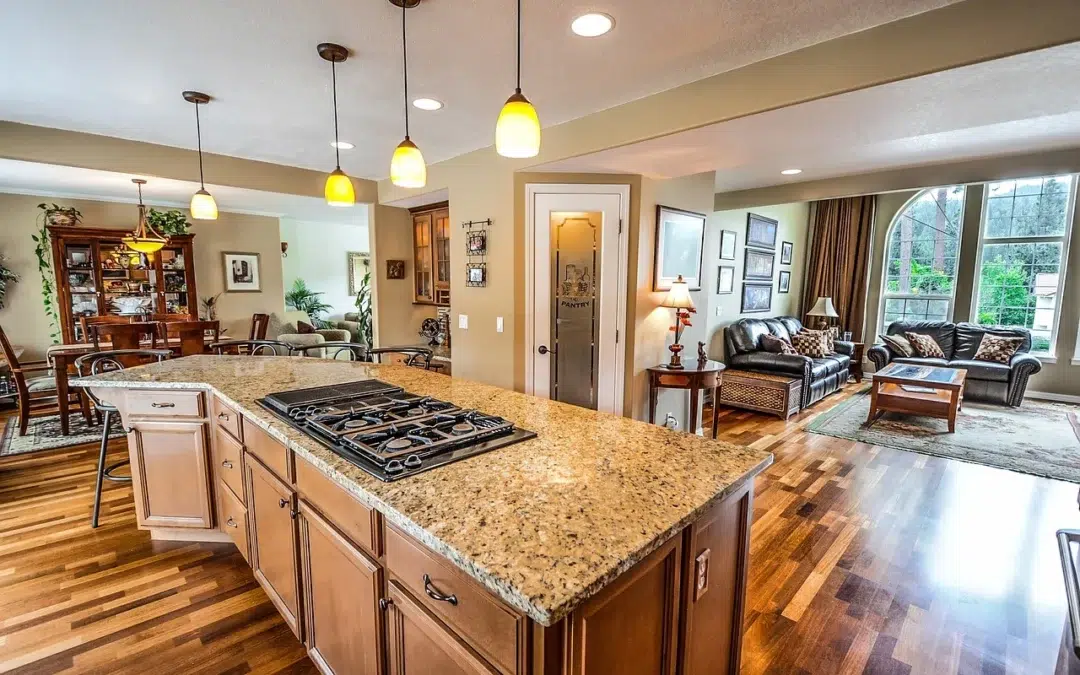Marble and Granite worktops are a stunning addition to any space, and are the epitome of elegance and durability right there in your home. However, like any natural stone, they also require care for that extra life. A few small steps, such as sealing granite worktops or sealing marble worktops, can go a long way when it comes to granite and marble worktops.
In this guide, we will discuss the what, the why, and the how of sealing worktops so you can enjoy a kitchen or bathroom surface that stays protected for years. Let’s dive in.
What: Understanding Worktop Sealing
Sealing is the process of applying a protective barrier to stone surfaces such as marble and granite to extend their lifespan. Whether it’s marble sealing or granite sealing, this step can help reduce long-term damage to your worktops.
Stone can naturally be porous, which means that liquids and oils can be absorbed by the surface if left untreated. A sealer, therefore, acts as a barrier between the stone surface and the outer contaminants that can spoil the worktop.
Remember: A quality impregnating or penetrating sealer allows your stone to breathe while also protecting it.
Why: The Importance of Sealing Marble and Granite
Without sealing, marble and granite are more vulnerable to:
- Stains: Working in a kitchen often comes with a few spills here and there. Liquids like coffee, wine, and oil can leave permanent marks on your stone surface.
- Etching: Lime and vinegar have natural bleaching properties, and a spill of either can leave dull patches on your stone surface.
- Moisture damage: Damp and moisture retention can darken and weaken your stone surfaces over time.
- Loss of shine: The absence of a protective layer can steal away the shine and lustre of your marble and granite worktop over time.
Who wouldn’t prefer to use their kitchen without being cautious every single second? Sealing your marble and granite kitchen worktops can give you that peace of mind.
How to Seal Marble and Granite Worktops
- Clean Thoroughly:
Use a pH-neutral stone cleaner to remove any dirt and grease from your surface. Avoid using harsh cleaners.
- Dry the Surface:
Ensure the surface is completely dry before you apply any sealer. Moisture trapped underneath can affect performance and even make the sealer ineffective.
- Application:
Make sure the sealer is applied evenly across the surface. You can use a soft cloth, sponge, or an applicator pad.
- Allow Penetration:
Let the sealer absorb into the stone surface for a good 15 minutes. You can then wipe away any excess with a clean, dry cloth.
- Repeat if Needed:
Some stones may require a second coat. Always follow the manufacturer’s instructions.
How Often Should You Seal Marble Worktops?
Marble is a highly porous material, so it needs sealing more often compared to other stone surfaces.
- Typically, marble sealing is required every 6 to 12 months.
- In busy kitchens or bathrooms, every 3 to 6 months may be necessary.
- Because marble is sensitive to acids, sealing it is especially important for its care.
How Often Should You Seal Granite Worktops?
Granite is considered a denser surface, but it still needs a bit of extra love with a good-quality sealer.
- Go for granite sealing in 12 to 18 months.
- More frequent resealing may be required in high-use areas.
- Try a drop test to check whether your sealer is intact or needs resealing.
Best Products for Sealing Granite and Marble Worktops
- Look for high-quality penetrating sealers made for natural stone.
- Look for products that are long-lasting and offer a higher shelf life.
- Water-based and eco-friendly solutions can help protect your worktop while also being kinder to the environment.
- Opt for stronger protection, especially for frequently used surfaces.
It’s Time to Reseal: Yes or No?
Here are a few questions that can help you determine whether your stone surface needs resealing or not:
- Is the water beading up or being absorbed into the worktop?
- Are there any dark patches appearing after recent spills?
- Does the surface look dull or patchy?
- Are stains taking longer to clean?
FAQs
- Is sealing permanent?
No, all sealers wear away with time. Regular sealing is necessary.
- Can we use any household cleaner on sealed worktops?
Household cleaners are fine, but make sure they are not acidic and are pH-neutral.
- Do worktops come with sealers installed?
At Marble Supreme, our worktops are installed with an initial seal. Most reputable installers do apply an initial sealing to your stone surface. However, depending on your supplier and/or installer, the factory or installation seal may not provide optimal long-term protection.
- Can we seal the worktops in our homes?
If done with precision and caution, it can be a DIY task. However, opt for professional services and products when dealing with larger and more expensive surfaces.
Sealing is like adding that extra layer of protection to your beautiful and elegant marble and granite worktops. With regular tests and the right products, your kitchen or bathroom can have a beautiful worktop for years to come.
If you’re unsure how often your stone worktop needs sealing, the experts at Marble Supreme are here to help. We’ll give you clear, practical advice so you can enjoy your worktop with confidence.
